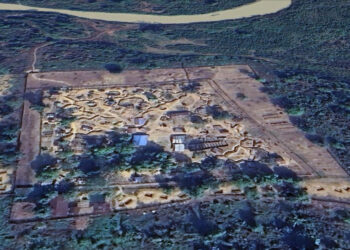RANGOON — As the election draws near, impassioned debate over the country’s future political direction is everywhere, from campaign rallies to the dining table.
Less than a month before the poll, there has been a noticeable spike in the intensity of election debates among family, friends, and online communities, a reflection of a lively and often rancorous tradition of debate that harkens back to the post-independence era.
At the same time, with the rise of social networking platforms such as Facebook, observers say they are concerned about the spread of hate speech, profanity and abuse, which they say is more common in Burma than ever.
Mon Mon, a student based in Rangoon, said that disputes are common in her household because she is a supporter of the National League for Democracy (NLD), while her father is a trenchant critic of both the opposition party and the incumbent Union Solidarity and Development Party (USDP).
“He always criticizes both parties, and he has decided not to vote, which is why we’re always arguing,” she said.
Nandar Hlaing is a former actress married to the son of Zaykabar Khin Shwe, the USDP candidate competing against NLD leader Aung San Suu Kyi in Kawhmu Township. She was subjected to online abuse last month for supporting her father-in-law’s campaign, at a time when most of the film industry has rallied behind Suu Kyi’s party.
Her husband, Zay Thiha, took to Facebook to respond to his wife’s detractors.
“When I post a photo of my wife, people write comments criticizing the [USDP],” he said. “Even when I post a photo of my one-year-old daughter, people write political comments. How have people come to find joy in criticizing a baby girl who understands nothing about politics?”
The fervor of online supporters has intensified as the election draws near, as has the Burmese government’s intolerance of online dissent.
This week, 25-year-old Chaw Sandi Tun was arrested after she shared a satirical post on Facebook that compared newly redesigned military garb to NLD opposition leader Aung San Suu Kyi’s green traditional htamein. The image was considered insulting to Burma’s military.
Thu Wai, chairman of the Democratic Party (Myanmar), said that family disputes always flared during election campaigns, with examples stretching back to the independence period.
He said the split of the Anti-Fascist People’s Freedom League, the main political party from 1945 to the military coup of 1962, into rival factions led to widespread acrimony that pitted families against each other.
“Before the split, family members supported each other. But after the split, they fought each other because they had different relationships to party members,” Thu Wai said. “What we are seeing now is not the same as it was in the past, but fighting among families and friends is intensifying. People are right to debate and to choose whom they support, but they shouldn’t harm each other. Debating shouldn’t be so extreme.”
Political analyst Yan Myo Thein said he was concerned that instances of sustained and heated political disagreement had in the past been used as a pretext for the government to cancel democratic elections.
“The 1962 military government operated like this, saying that with more parties and people fighting each other was not proper democratic practice,” he said. “I’m concerned the government will use this excuse again.”
Since he and his wife became the target of online abuse, Zay Thiha has urged the people of Burma to not let political disagreements stand in the way of relationships with family and friends.
“No matter which party you choose, don’t let that decision affect the dining table at your house,” he said. “If a father supports one party and a son supports another, it will be difficult for them to eat together…Vote for the party you like. It does not matter which party wins the election, but it is important that family members do not quarrel.”

















